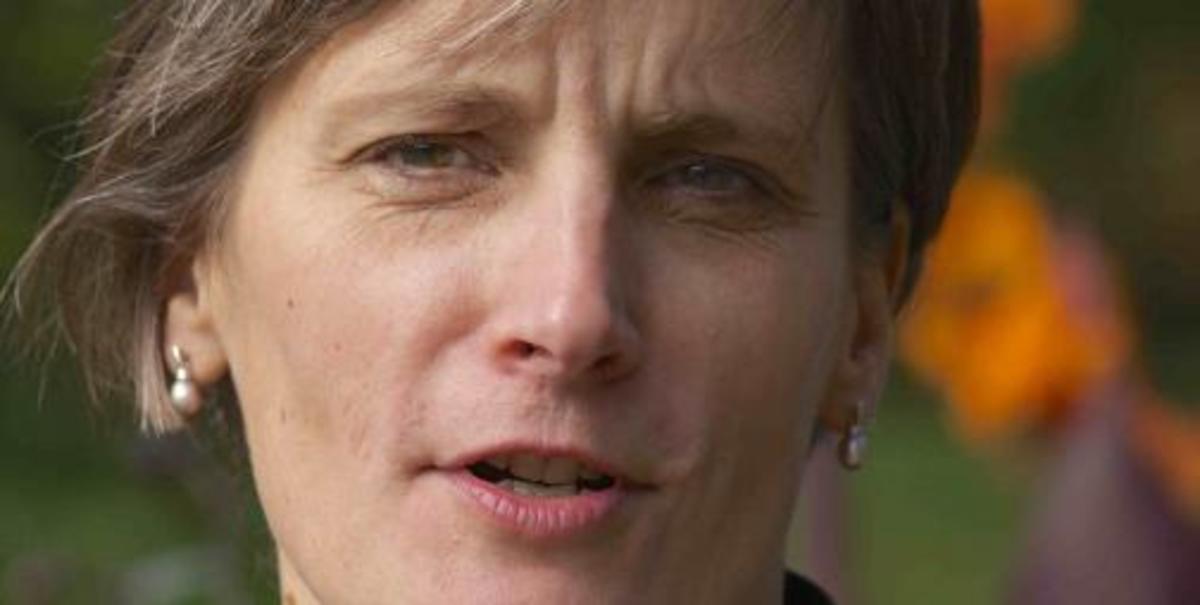Houghton Lecture - Corrine Le Quere, Univ. of East Anglia
Corinne Le Quéré will be presenting several lectures on the global carbon budget in a changing climate.

Corinne Le Quéré is Professor of Climate Change Science and Policy at the University of East Anglia (UK) where she conducts research on the carbon cycle and its interactions with the Earth’s climate. Her research has helped to determine how and why the natural carbon reservoirs are changing, particularly in the Southern Ocean. She spearheaded the development of marine carbon-cycle models with new ways to represent plankton biodiversity and ecology.
Corinne is director of the Tyndall Centre for Climate Change Research, and member of the Scientific Committee of the Future Earth platform for global sustainability and of the UK Committee on Climate Change. She authored several assessment reports of the Intergovernmental Panel on Climate Change (IPCC), and leads an annual update of the ‘global carbon budget’ by the Global Carbon Project, an international effort to keep track of global carbon emissions and their fate in the environment. She was elected Fellow of the Royal Society in 2016.
Corinne completed a B.Sc. in physics from University of Montréal (1990), an M.S. in Atmospheric and Oceanic Sciences from McGill University (1992), and a Ph.D. in oceanography at University Pierre et Marie Curie (1999). She conducted research at Princeton University, at the Max-Planck Institute for Biogeochemistry in Germany, and at the British Antarctic Survey in the UK.
Schedule (all lectures will be held in room 54-915):
1) The contemporary global carbon budget. Friday, Oct. 7th, 9am.
The global carbon cycle plays a key role in regulating climate and climate change. Natural reservoirs on land and in the ocean hold large quantities of carbon, which is exchanged with the atmosphere on time scales ranging from seconds to hundreds of thousands of years. This first lecture will explain what we know about the contemporary carbon cycle. It will detail the processes that regulate the storage of carbon in the terrestrial biosphere and in the ocean and present the latest data on the trends and variability in these ‘carbon sinks’. The observed changes in the carbon sinks will be discussed in the context of a changing climate.
2): Marine ecosystems and ocean acidification. Friday, Oct. 14th, 9am.
The ocean holds 50 times more carbon than the atmosphere. Because of its large buffer capacity, the ocean will eventually absorb 60 to 85% of the carbon dioxide emitted to the atmosphere on a time scale of 1000 years or longer. However the uptake of carbon dioxide by the ocean has the side effect of acidifying the water, with negative consequences for marine ecosystems and unclear implications for the functioning of the marine carbon cycle. This lecture will detail the linkages between marine ecosystem processes (from bacteria to jellyfish) and the carbon cycle. It will show how ecosystem processes can be understood through their biogeochemical functionality, and explain the knowns and unknowns of the impacts of ocean acidification. The lecture will end with a discussion of how changes in marine ecosystems could have knock on effects on climate regulation.
3): Potential and risks of Carbon Geoengineerin. Friday, Oct. 21st, 9am.
Multiple options have been proposed to deliberately enhance the storage of carbon in natural reservoirs, and thus reduce the magnitude of climate change and/or the efforts otherwise needed to reduce greenhouse gas emissions directly. These ‘Carbon Geoengineering’ options range from afforestation to bio-energy with carbon capture and storage to ocean iron fertilisation. But what is their potential (and their costs!), and what are the possible unintended consequences? This lecture will give an overview of the current understanding on this rapidly moving topic.
4): Reaching net zero carbon balance in the 21st Century. Friday, Oct. 28th, 9am.
The Paris Agreement on climate change has an ambition of balancing the global emissions and sinks of greenhouse gases in the second half of this century in order to limit climate change and its impacts. This lecture will explain the scientific understanding behind the links between global temperature change and cumulative carbon emissions, and detail the underlying time scales, amplitude of change, and uncertainties. It will present a range of model projections of climate change this century and discuss their implicit assumptions about future carbon management and future response of the natural carbon cycle to climate change. The lecture will also discuss the risks of large and non-linear responses of the carbon cycle to a changing climate (so-called ‘tipping points’) and their potential consequences. It will conclude the full lecture series by suggesting ways to support societal responses to climate change that the students might like to pursue throughout their careers.
Currently no events coming up. View Event Archives